While nearly every aspect of The Lord of the Rings is perfect, the music certainly stands out as being particularly effective. Composed by Howard Shore, the music of The Lord of the Rings is both haunting and beautiful, intimate and rousingly epic. It ranges wildly in terms of tone and excitement, and it helps the movie's best scenes become even better.
It's hard to pinpoint which musical moments are the best, as the trilogy is filled with commendable and chill-inducing music. But some scenes have become intrinsically linked to their musical score, and fans couldn't imagine seeing them without Shore's brilliant music.
10 Introducing The Shire
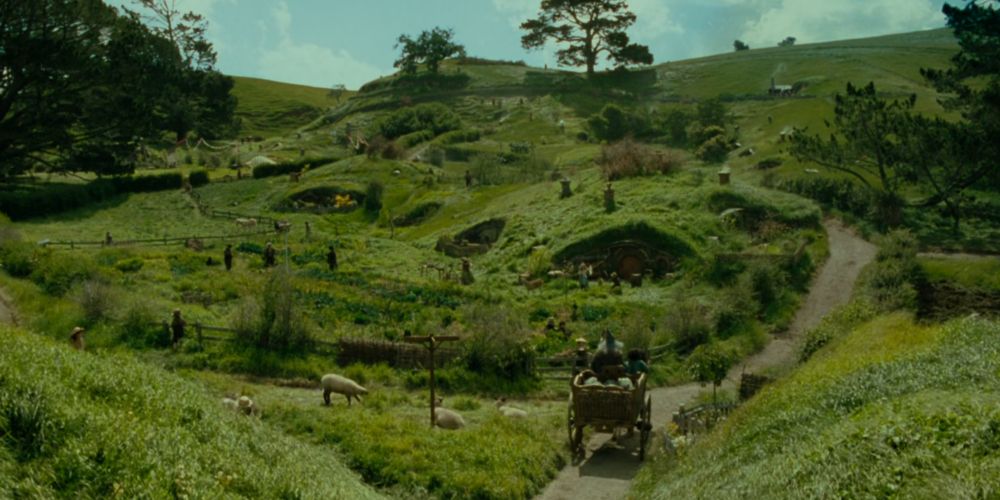
Many Lord of the Rings fans consider The Fellowship of the Ring to be the greatest movie, and that's largely because of scenes like this. The movie opens in spectacular fashion, as the epic battle on the slopes of Mount Doom eventually segues into the cozy atmosphere of The Shire.
"Concerning Hobbits" plays throughout much of the Shire montage, and "Concerning Hobbits" is often considered one of Shore's greatest works - if not his greatest. Maybe it's not "epic" in the traditional sense of the word, but it sure is beautiful.
9 Pippin's Song
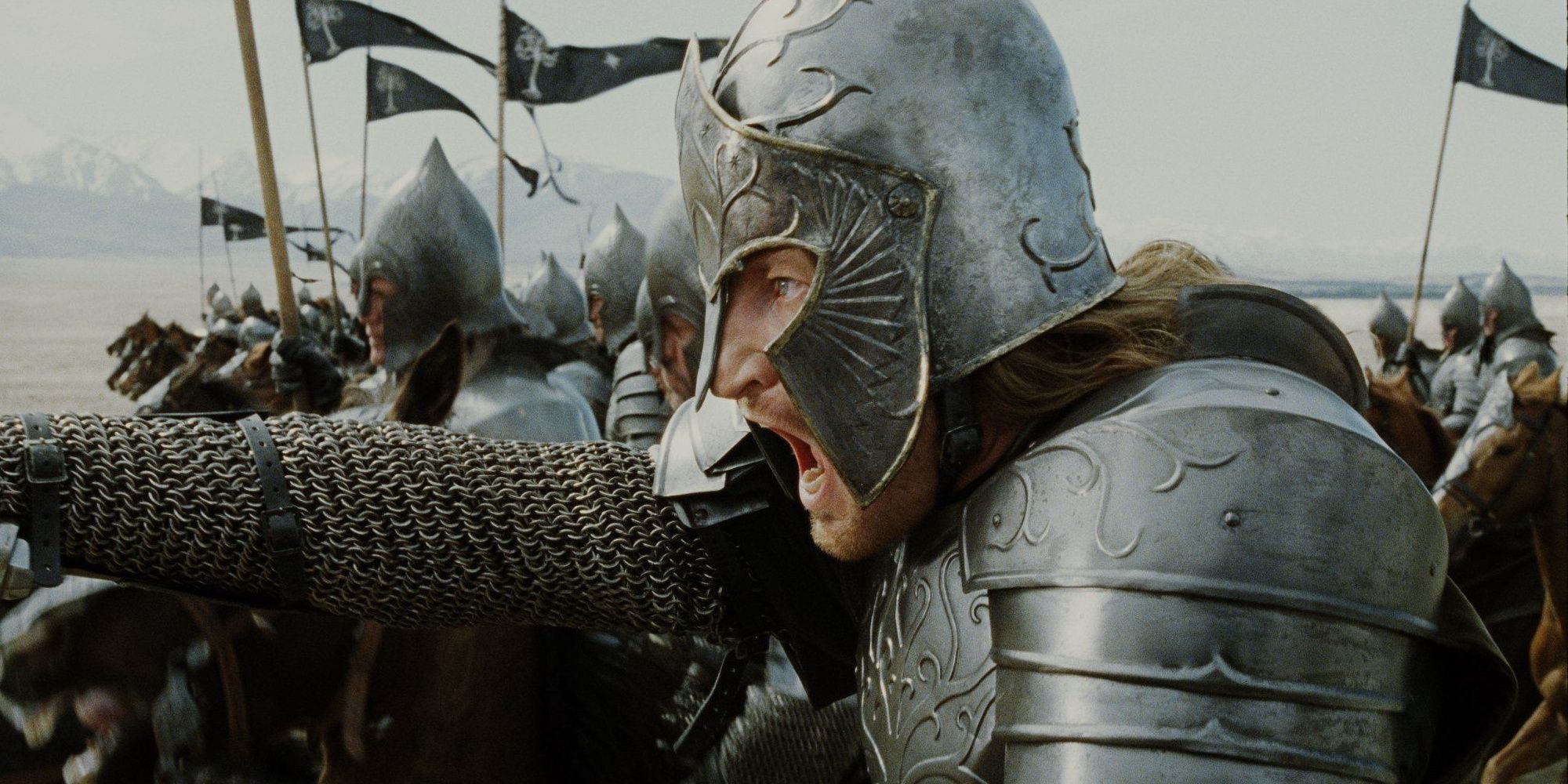
The Return of the King features one of the most toxic and abusive relationships of the whole series - that between Faramir and his father, Lord Denethor. In one of the movie's most tragic sequences, Denethor sends Faramir and his men on a suicide mission to re-capture Osgiliath.
Back in the safety of Minas Tirith, Denethor asks Pippin to sing him a song. He sings Denethor a particularly tragic song, which hauntingly plays in the background as Faramir rides to his almost certain death.
8 "But I Can Carry You!"
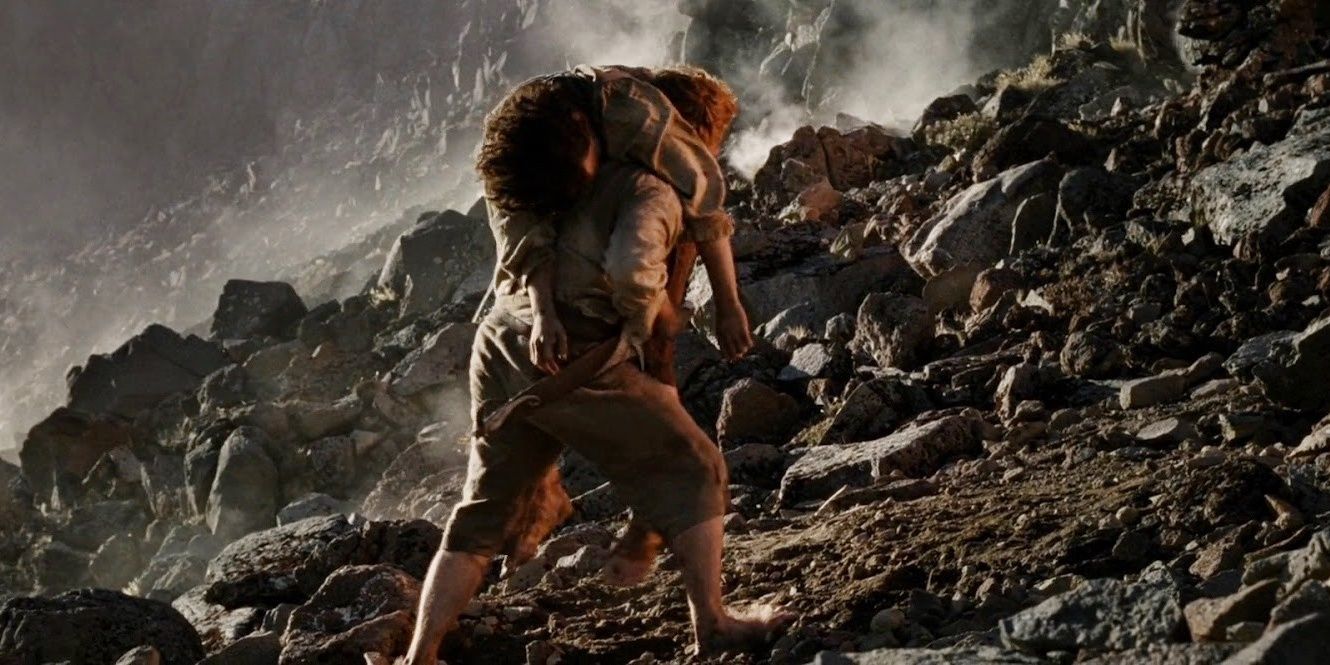
The climax of The Return of the King is a thing of beauty, and it contains one of the most chill-inducing sequences of the entire trilogy. As Frodo collapses in exhaustion, Sam makes the brave decision to carry him up the mountain.
As he throws Frodo on his back, the beautiful "Mouth of Sauron" begins to play as the camera pans up the massive and daunting Mount Doom. It's a suitably epic piece of music for such an epic scene, and it makes Sam's decision seem all the more heroic.
7 The Black Rider

Few pieces of music on The Lord of the Rings soundtrack are more intimidating than "The Black Rider." Filled with haunting strings and the epic vocals of a choir, The Black Rider tends to play whenever the Nazgul attack Frodo in The Fellowship of the Ring.
Many languid and beautiful pieces of music are heard throughout the first half of the film (like "Concerning Hobbits"), so hearing the harsh "The Black Rider" serves as a stern and frightening reminder of the dangers lurking outside The Shire.
6 The Balrog Fight
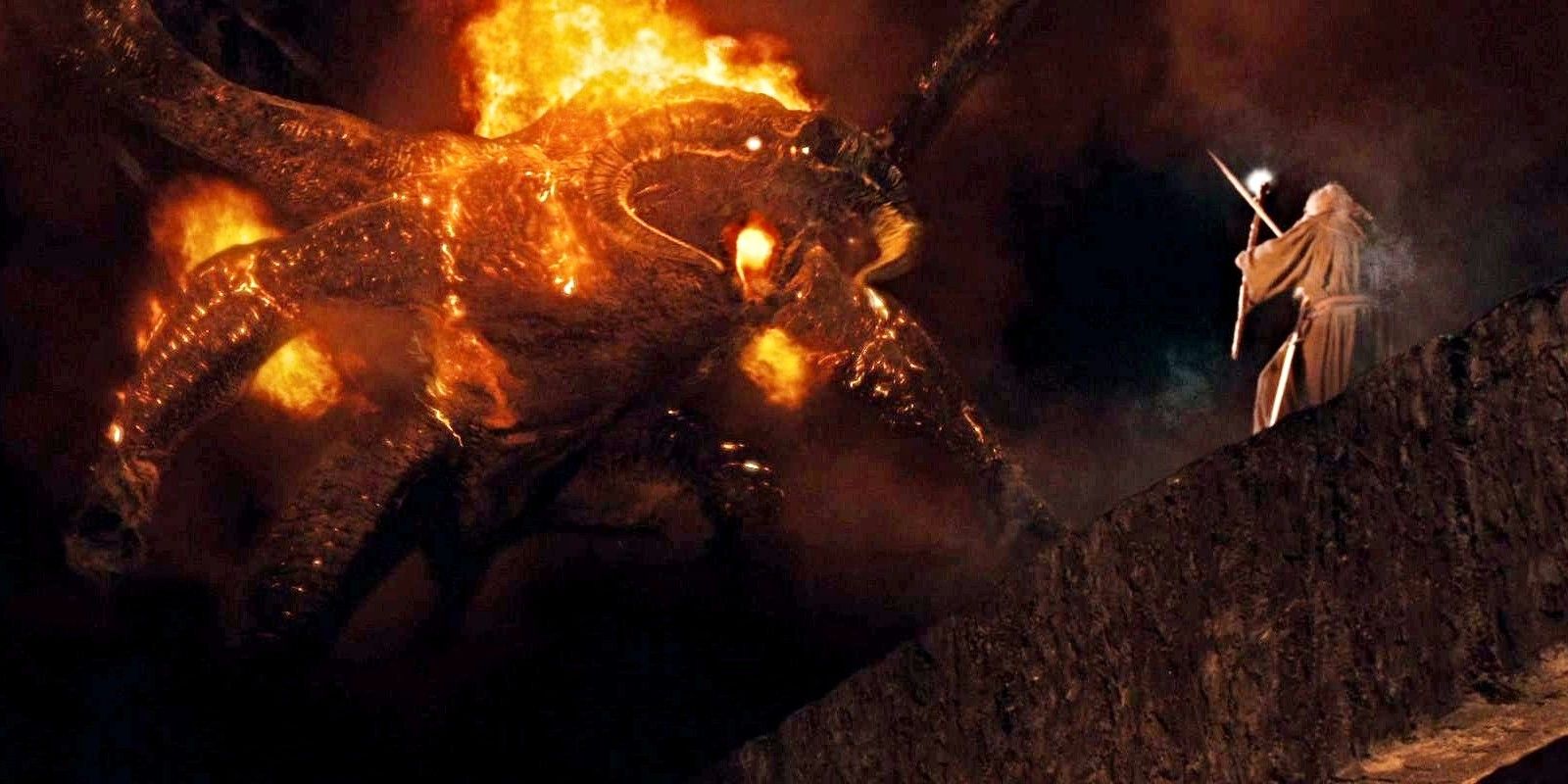
The Two Towers is typically regarded as the "slowest" film, as it has a lot of heavy lifting to do in introducing Treebeard, Rohan, Theoden, etc. However, it opens in a truly spectacular fashion with a continuation of the fight between Gandalf and the Balrog.
The scene opens immediately after Gandalf's fall from the Bridge of Khazad-dûm and shows him battling the Balrog with nothing but a sword. It makes for some of the most intense imagery of the trilogy, and the music certainly helps set the epic and somewhat tragic tone.
5 The Fall Of Barad-dûr
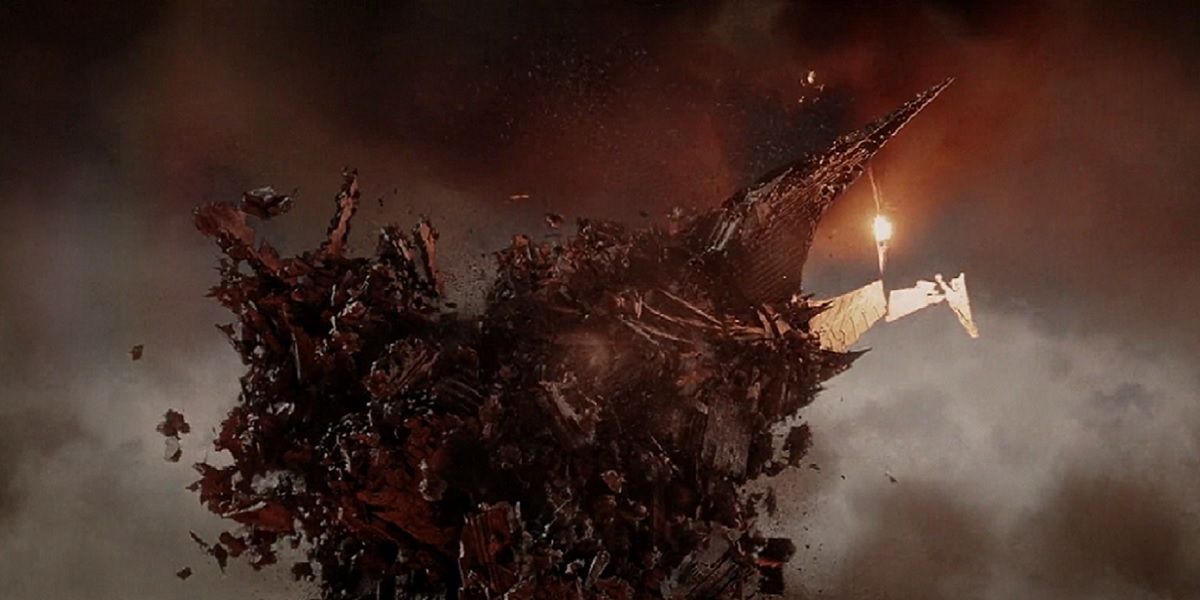
Throughout the entire Lord of the Rings trilogy, there is no image more rewarding than the fall of Barad-dûr. Immediately after the ring falls into the lava, the eye atop Barad-dûr starts going crazy and widens in fear and anticipation of death.
The entire tower then begins to crumble, slowly falling down upon itself before the eye explodes, sending debris flying in all directions. The image is extraordinary, and so is the angelic, victorious music that plays throughout the fall. This scene was three movies in the making, and it delivered on all fronts.
4 The Last March Of The Ents
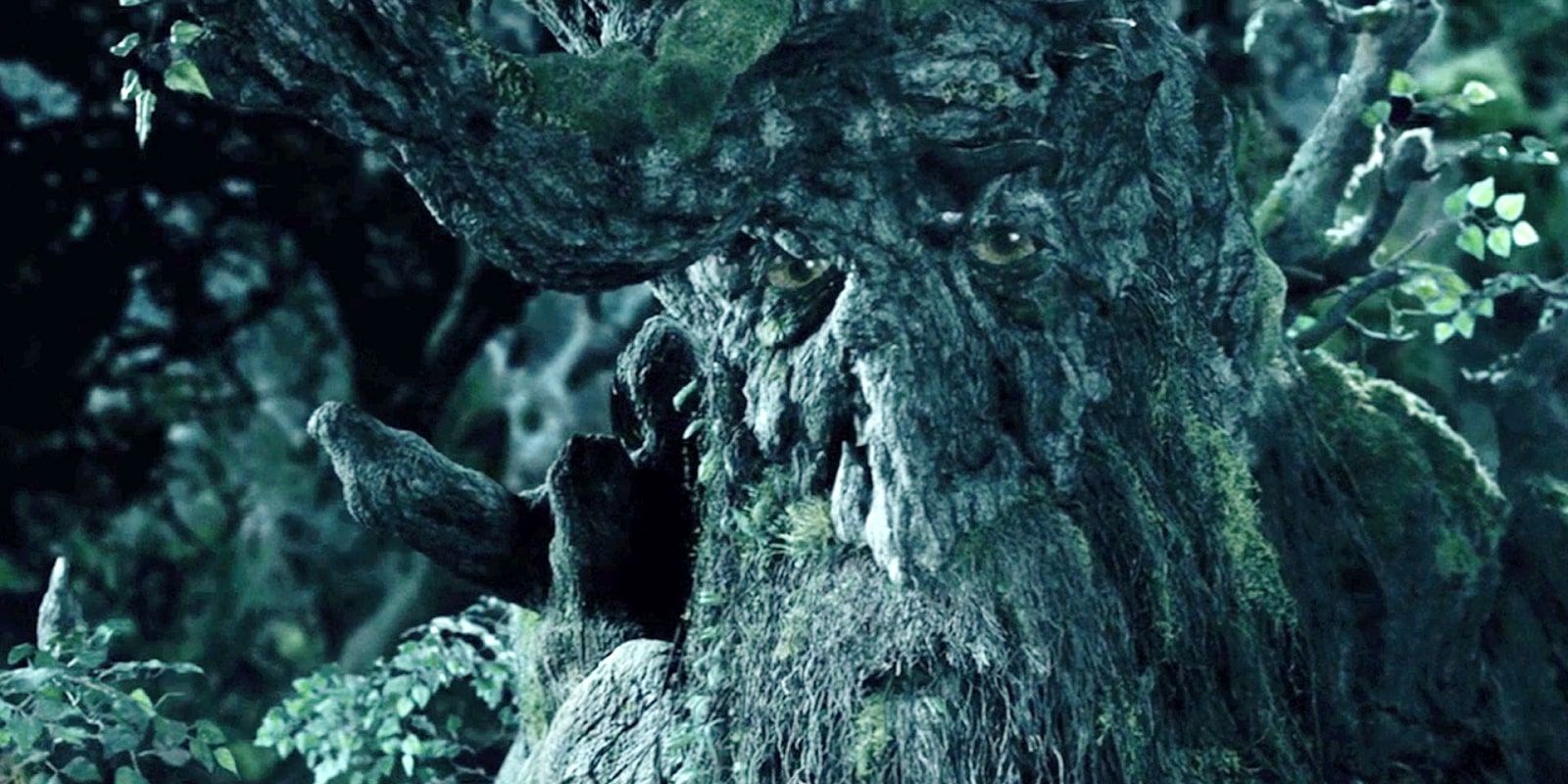
While most of the Ent stuff may seem boring and slow upon re-watches, it's all worth it for the wonderful scene that is The Last March of the Ents. Seeing that all his tree friends have been felled by Saruman, Treebeard decides to attack Isengard.
He issues a booming command, and the forest literally comes alive as the trees begin to converge on the slopes of Isengard. They then begin The Last March Of The Ents, and the choir-based music that plays throughout the march is always good for inducing goosebumps.
3 The Lighting Of The Beacons
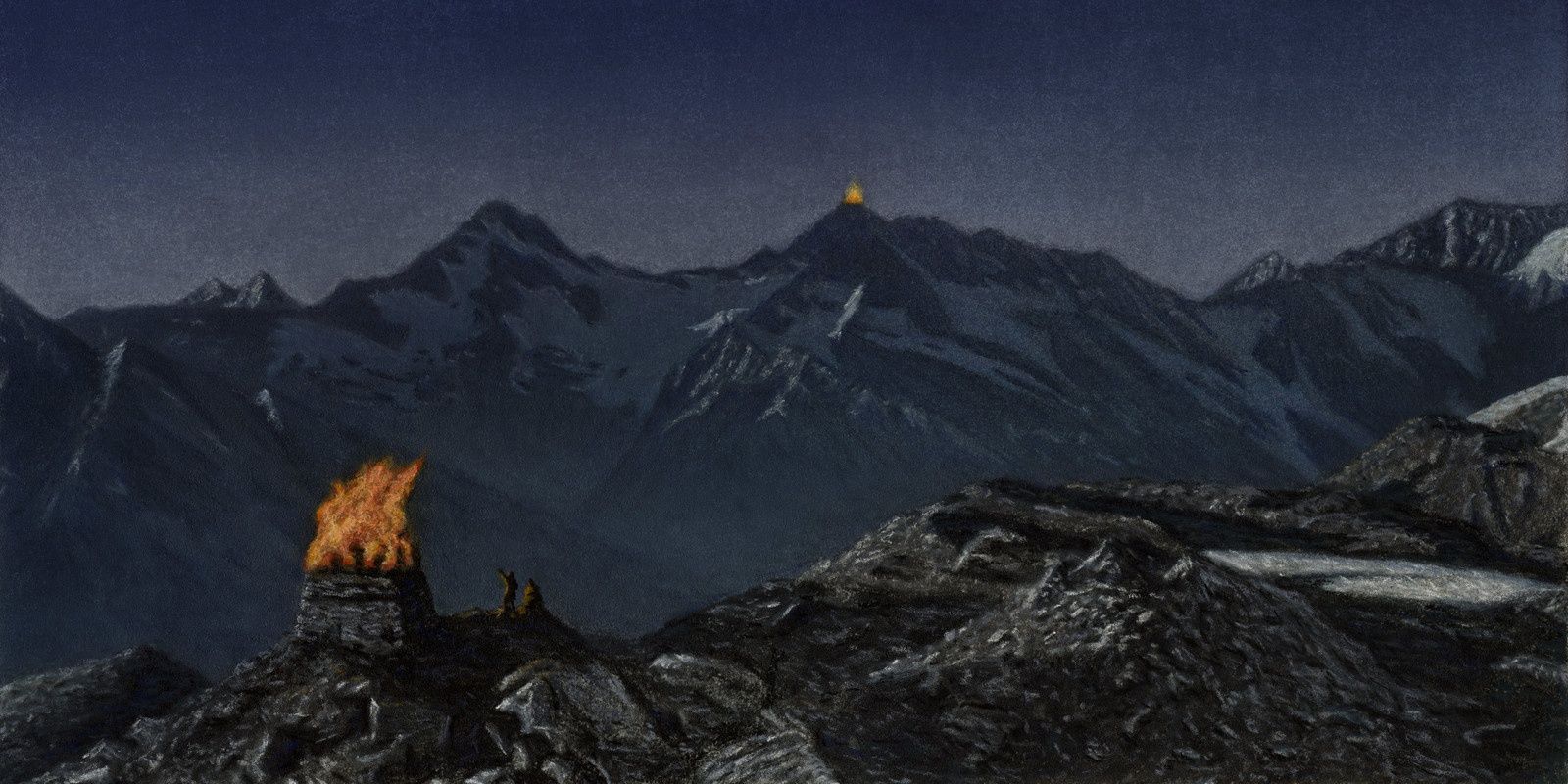
The Battle of the Pelennor Fields is arguably the most epic sequence in the entire trilogy. But to get there, Gandalf needed to alert the forces of Rohan. He used the small and resourceful Pippin in his plan, who sets fire to the beacon of Minas Tirith.
This fire sets off a chain of similar fires throughout the mountains of Gondor, and each flame is shot with utter majesty. The epic filmmaking is undoubtedly aided by Shore's "The Lighting of the Beacons", which lends the sequence a suitably momentous and victorious tone.
2 Ride Of The Rohirrim
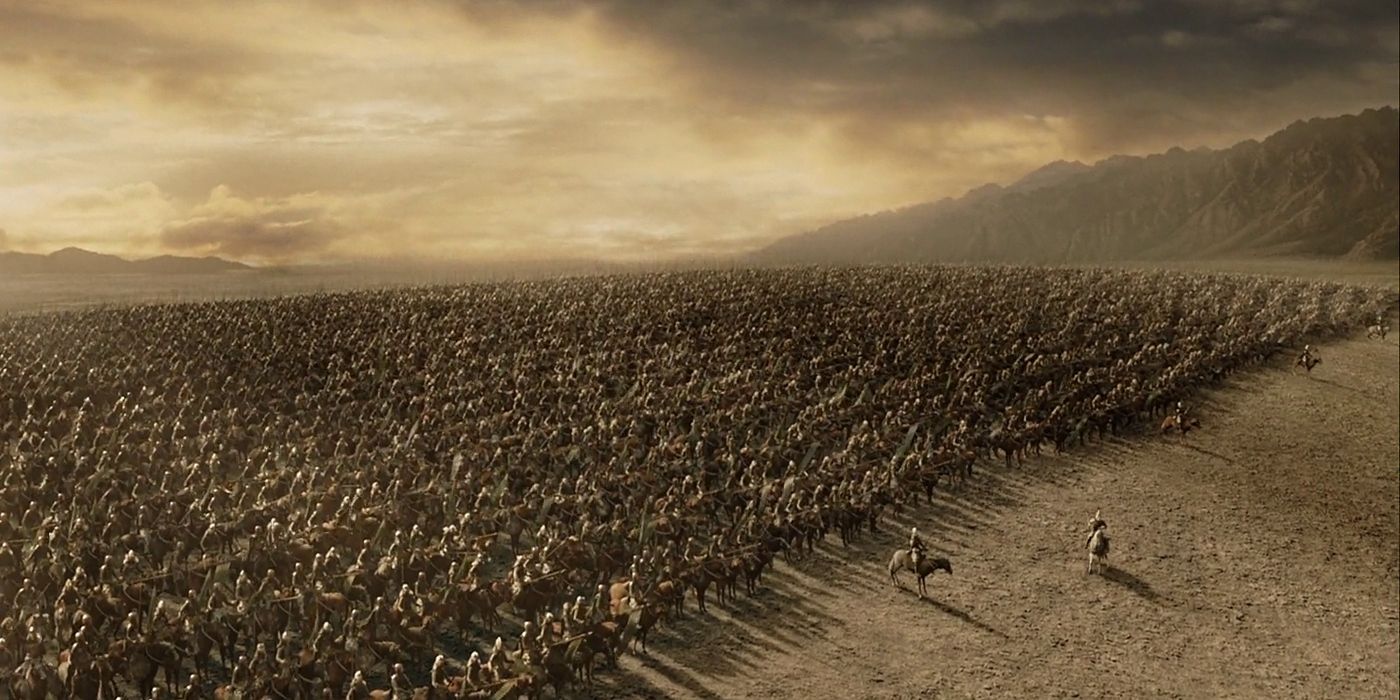
One of the series' most famous sequences is the Ride of the Rohirrim. Theoden and the forces of Rohan arrive at Minas Tirith to see the city breached and half-destroyed. Knowing that they are riding to their deaths, Theoden issues one of the most inspirational speeches of all time before blowing the horn and ordering the charge.
The image of the massive Rohan army charging into battle is certainly gorgeous, but it's Shore's music that makes the scene. It's enough to bring even the most hardened men to tears.
1 "You Bow To No One."
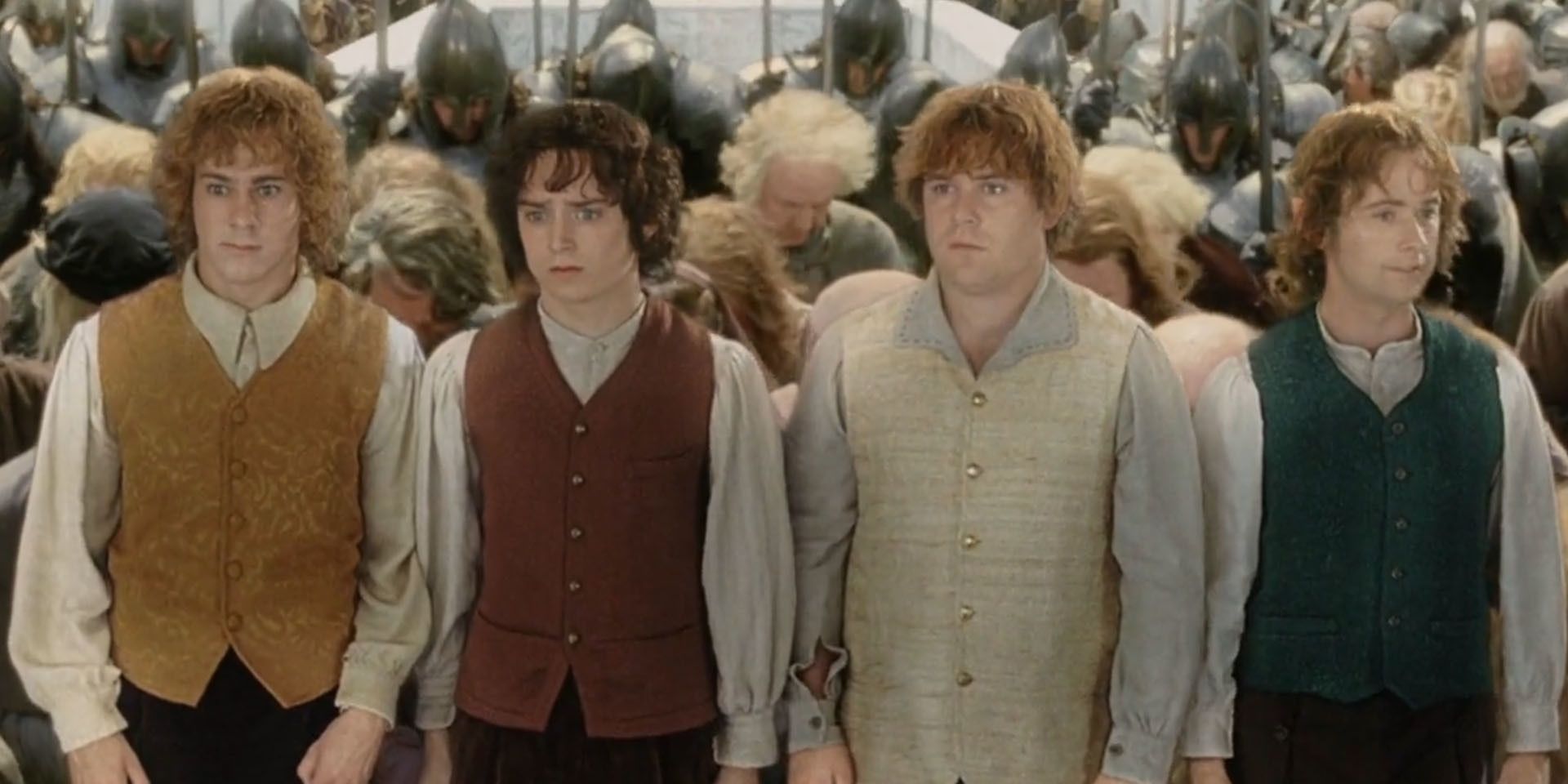
Speaking of bringing hardened men to tears, the bowing scene at the end of Return of the King is one of the most tear-inducing scenes in movie history. Just as the hobbits are bowing to Aragorn, Aragorn stops them and issues his now-iconic line.
He then bows to the hobbits - as does everyone else in Minas Tirith. It's a beautiful sentiment, but the tears really start flowing once Howard Shore's "The Return of the King" begins playing. It's rousing, it's epic, it's gorgeous, and it doesn't leave a dry eye in the house.
from ScreenRant - Feed https://ift.tt/39zePmY






0 Comments
Please don't use vulgar comments and avoid discussion on Religious matters